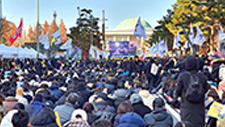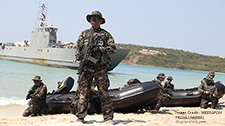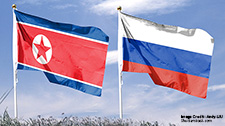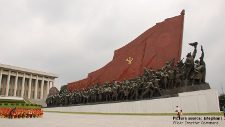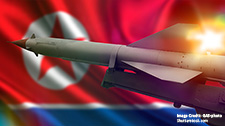North Korea Is Preparing to Confront the US in 2022
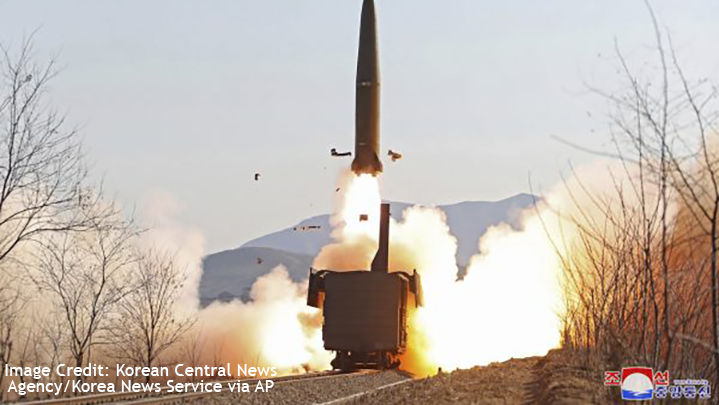
Sangsoo Lee
Introduction:
Since Pyongyang rejected the Biden administration’s proposal of diplomatic talks as insufficient to entice Kim Jong Un back to the negotiating table, North Korea seems to have recalibrated its strategy in dealing with the United States. While the North’s end of year report conspicuously condensed the outcome of its review on foreign policy and replaced Kim’s New Year’s Day address, it is expected that North Korea will conduct more advanced weapons tests and hold military parades to draw full attention from the U.S. and the international community in the upcoming months. This can be seen as North Korea’s own style of a “maximum pressure” strategy, meant to change the United States’ fundamental policy toward the country – what Pyongyang calls the “hostile policy” – before restoring the talks.
North Korea’s 2022 Security and Foreign Policy
Despite the 10th anniversary of Kim Jong Un’s ascension to power last year, he did not deliver a New Year’s Day address in 2022. While North Korean state media reported the results of the five-day plenary meeting of the Workers’ Party Eighth Central Committee on December 27-31, it is puzzling that Pyongyang did not share details on its foreign policy and strategy for 2022. It just said that the meeting reviewed “principled issues” and relevant strategic directions to cope with the rapidly changing international political situation.
Many experts said the absence of an announcement on North Korea’s foreign policy direction could be seen as providing “strategic flexibility” or room to maneuver in the uncertain external environment. Considering the upcoming events, the Beijing Winter Games in February and the South Korean presidential election in March, there are many uncertainties in the region. The possibility of military conflicts in Ukraine and Taiwan cannot be ruled out this year either. However, those upcoming events will have only a limited impact on determining North Korea’s approach to external affairs. China is likely to turn a blind eye to North Korea’s further missile tests if it stays silent during the Olympics. In addition, whoever the next South Korean president is, the foundation of Seoul’s approach to Pyongyang will not change without Washington’s approval.
As a result, Pyongyang might have already evaluated the impacts of future external affairs and set its direction on the foreign policy by taking a “frontal breakthrough” and “strong to strong” strategy to deal with the U.S. and South Korea. Thus, while it is strategically hidden from public reports, North Korea has already prepared its military action plans, such as a series of future missile and possibly even nuclear tests in response to U.S. sanctions, the upcoming South Korea-U.S. joint military exercises, and the potential victory of South Korean main opposition presidential candidate Yoon Suk-yeol in the election.
Related Publications
-
Martial Law and Political Polarization: What’s in Store for South Korea?
Abstract On December 3, South Korean President Yoon Suk-yeol declared emergency martial law, shocking both the country and the rest of the world. However, the martial law was only in […]
-
Unraveling of a martial law attempt: South Korea’s democratic moment
South Korea, once known as the “Land of the Morning Calm” and the Hermit Kingdom, has a complex modern history marked by ideological tensions and political challenges. Since the establishment […]
-
Russian and DPRK Military Cooperation in Ukraine – A Win-Win?
In early August 2024, Ukraine launched a significant offensive in the Kursk region in Western Russia which may have prompted the activation of the DPRK-Russia Strategic Partnership Agreement and triggered […]
-
Kamala Harris on North Korea: Change or Continuation?
Despite many efforts and different strategies, both previous and current U.S. administrations have been unsuccessful in preventing the Democratic People’s Republic of Korea (DPRK) from developing its nuclear and missile […]
-
Kamala Harris and North Korea: Between Continuity, Pragmatism, and Strategic Realignment
A possible future Harris administration is likely to continue the Biden administration’s approach to North Korea, focusing on sanctions and diplomatic pressure. This strategy may be shaped by broader geopolitical […]
